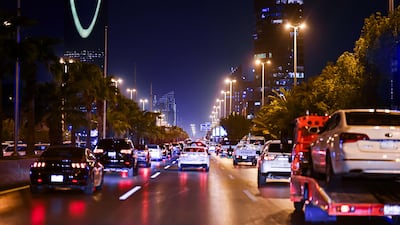Saudi Arabia’s non-oil private sector gained new momentum last month, growing at its fastest pace in six months, according to the latest Riyad Bank Saudi Arabia Purchasing Managers Index (PMI) survey by S&P Global.
The report, released on Sunday, showed business activity strengthening across the board as companies benefited from stronger customer demand, new orders and continued hiring.
The headline Purchasing Managers’ Index (PMI) rose to 57.8 last month from 56.4 in August, well above the 50.0 mark that separates growth from contraction. This signals the most robust improvement in business conditions since March.
It was significantly driven by a sharp rise in output and new work inflows. Nearly three in 10 surveyed companies reported higher business activity, compared with just one per cent that saw a slowdown. S&P Global noted this represented the largest one-month increase in output growth in four years. Companies attributed the improvement to stronger market demand, successful marketing campaigns, and a pick-up in both domestic and international sales.
The stronger sales outlook also encouraged companies to boost purchases and build up inventories. Buying activity grew at its fastest rate in three months, leading to the largest increase in stock levels since April. Many businesses said they were expanding supplies to ensure smoother operations and prepare for expected future orders.
Hiring activity remained a key bright spot. Companies across Saudi Arabia’s non-oil economy continued to recruit at a brisk pace, aiming to keep up with demand and improve efficiency. After two months of rising backlogs, overall workloads stabilised, suggesting that companies were largely keeping pace with incoming business.
Business confidence also improved for the second straight month, with companies expressing optimism about stronger demand, higher sales inquiries and new client wins.
However, not all indicators were positive. The survey showed that input costs, including wages and supplier prices, continued to rise faster than the long-term average, putting pressure on profit margins. While companies passed some of these costs on to customers, selling price inflation eased to its lowest level in four months as many companies kept prices steady to stay competitive.
Saudi Arabia's real GDP growth is expected to accelerate to 3.9 per cent in 2026, according to the International Monetary Fund, supported by the OPEC+ production cut phase out schedule.
Global credit rating agency, Fitch Ratings, has cautioned that Saudi Arabia’s expansive spending ambitions could face significant risks, after the release of the kingdom’s 2026 pre-budget statement on Tuesday.
The government indicated its move to implement tighter fiscal discipline after revealing greater widening than expected in its 2025 budget deficit.


